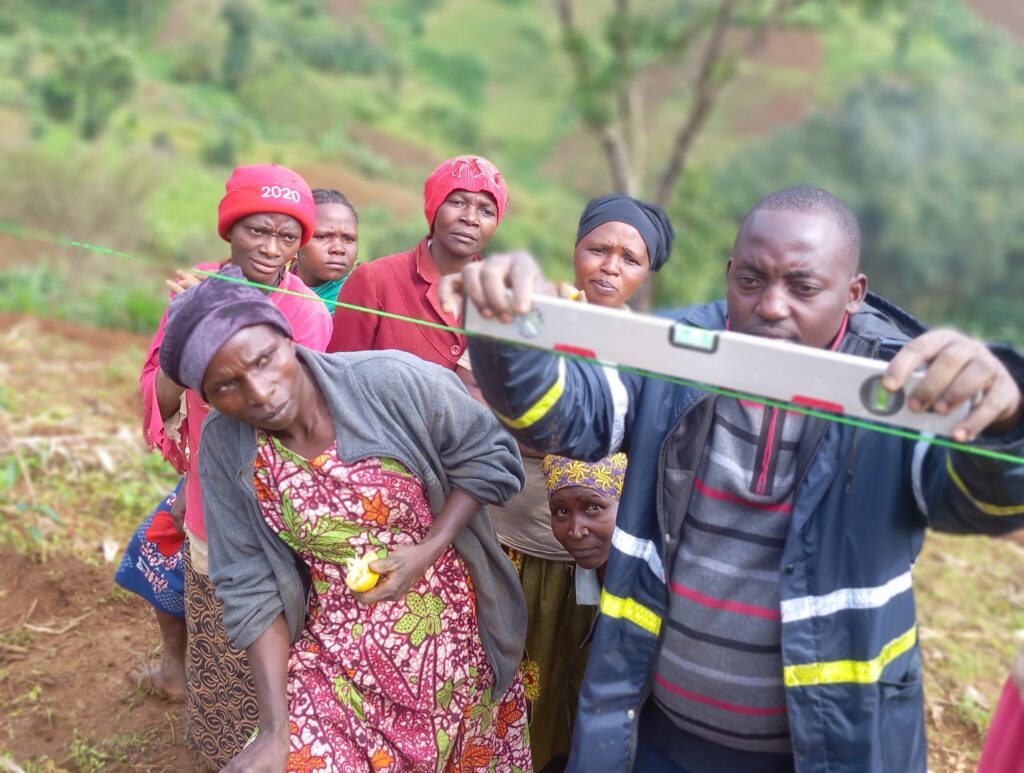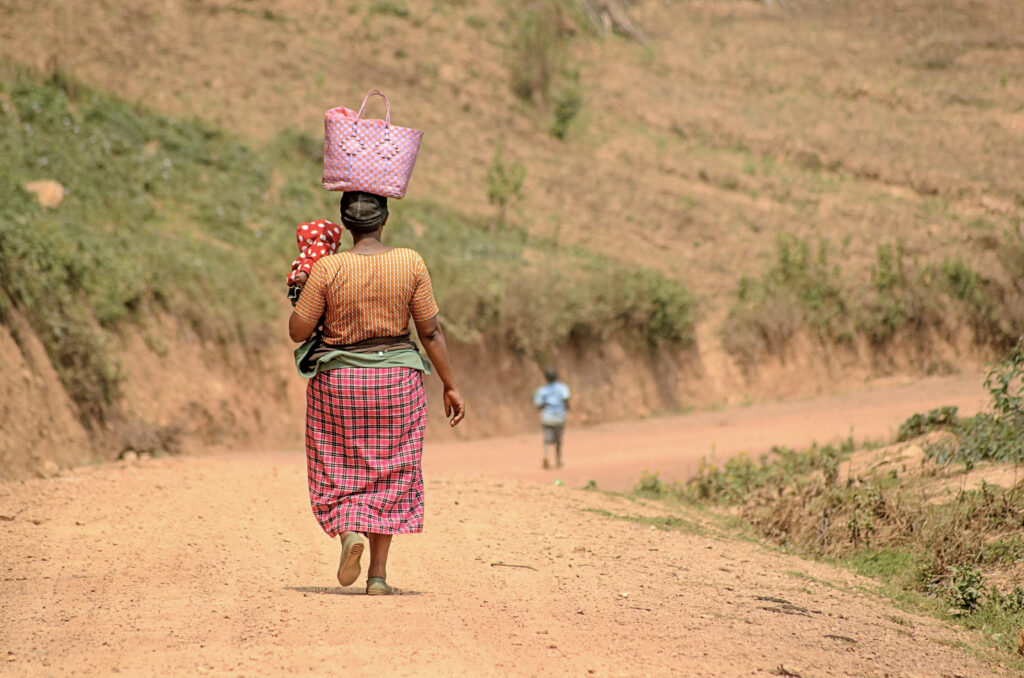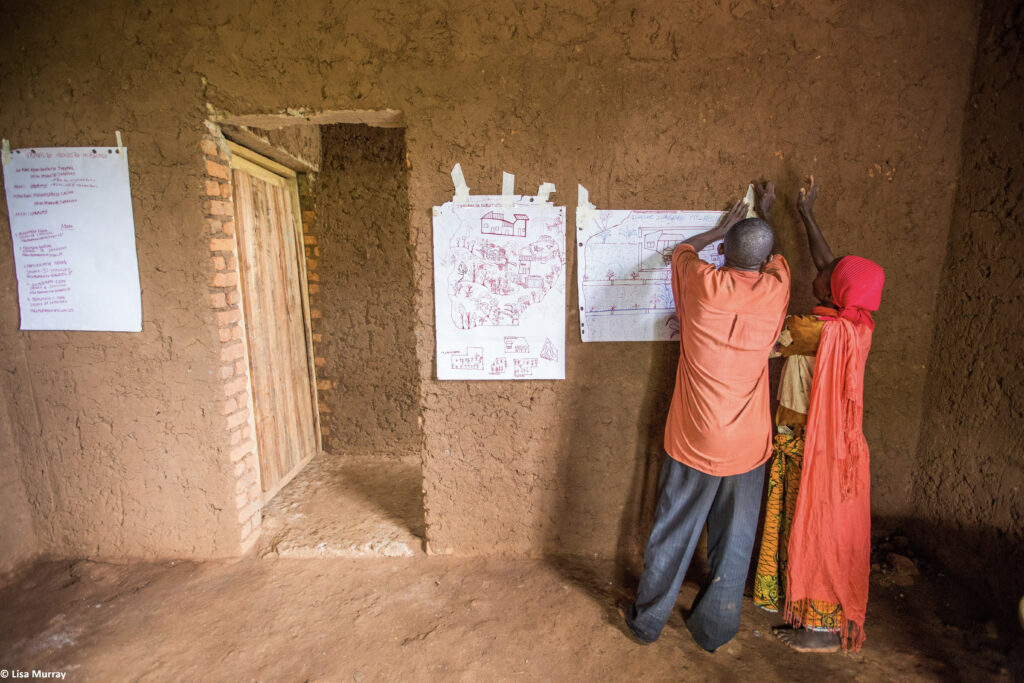
Quite often in Uganda, women are abandoned or lose their spouses during emergencies, such as war or sickness, and are then left to care for their families on their own. In the case of a natural disaster, many families can be displaced from their homes while their farmlands are washed away by heavy rains.
Fortunately, the Building Resilience and Inclusive Growth of Highland Farming Systems for Rural Transformation (BRIGHT) project in Uganda prioritizes gender inclusion as a key intervention area to address such challenges.
BRIGHT aims to improve women’s ability to make decisions at the household level and ensure they have access to and control over land, inputs, and other natural resources through the Integrated Farm Planning (PIP) approach. The PIP approach was first introduced in an IFDC program through the Supporting Agricultural Productivity in Burundi (PAPAB) (2015-2019) project which involves helping families and communities create actionable plans based on community and household aspirations, strengths, available opportunities, and resources. Families are guided in drawing their desired future situation and their family tree to gain insight into gender relations at the household level.

The PIP guides households to strengthen inclusive decision-making since this builds a foundation of motivation, stewardship, and resilience. In turn sustainable changes within those households and their communities are reinforced.
“Due to the gender dynamics in communities, we anticipate that 70% of the project’s targeted 106,560 households will practice joint decision-making.”
Josephine Kasande, Gender, Youth, and Social Inclusion Lead for BRIGHT
One example of BRIGHT’s positive impact on women can be seen in the story of Annette Namasopo and Gladsy Kilande, two widows from the highlands of Wanale Village in the Mount Elgon region of Uganda. Each woman had six children with the same man, and they faced difficulties after he passed away during the COVID-19 pandemic.
Annette expressed her gratitude toward BRIGHT for how the project helped the two women work together, saying, “We have our differences after having been married to the same man, and I thought we could never work together. But when the BRIGHT project came to us with the PIP approach, it made us realize that the challenges we face are universal. We are now working together to put into practice what we have been taught to better our households.”
Gladsy also benefited from the approach by deciding to join the village savings group, a choice she had initially rejected because Annette was already a member. “I wanted to save some money every week to prepare myself for emergencies. However, Annette was already a member and we have only one savings group in our village, so I decided not to join. But now I understand how important it is to put our differences away and work for our children’s welfare,” Gladsy said. Their neighbor Adam Kazaire shared that the two ladies have built a relationship and joined the rest of the community in implementing BRIGHT interventions.

Like Annette and Gladsy, Adam also had initial difficulties in understanding the perspectives of others. He said, “We had a mentality that what happens to the people in the highlands does not affect us in the lower lands. After sharing the challenges that we face, we realized that we are all affected the same way and we have the power to solve our problems.”
Because of the PIP approach, Adam has also started involving his wife in decision-making on household finances. “Most times, I would not tell her how much I earn from my side business in carpentry. After learning about the family tree from BRIGHT, I realized how unfair I have been to my wife and children. We would have accomplished so many things had I been open to her about my finances,” Adam shared.
BRIGHT plans to reach 106,560 Ugandan households to encourage resilient and inclusive economic development of rural highland farming communities so that they can absorb, mitigate, and adapt to economic and climatic shocks and stresses through the use of good agricultural practices.
In the pursuit of inclusivity within farmer households, BRIGHT is committed to fostering an environment where women are included and recognized for their unique, valuable contributions.
The Building Resilience and Inclusive Growth for Highland Farming Systems for Rural Transformation (BRIGHT) project, funded by the Netherlands Ministry of Foreign Affairs through the Embassy of the Kingdom of the Netherlands, seeks to build the resilience capacity of farm households and farming systems to increase income and food and nutrition security of all farmers and transform households from subsistence to more market-oriented in Kigezi, Mount Elgon, and Rwenzori regions.





